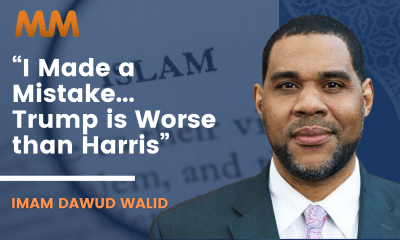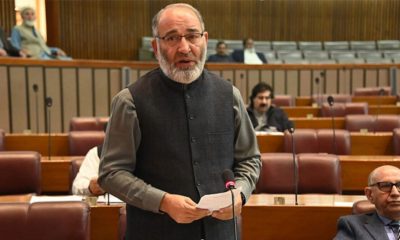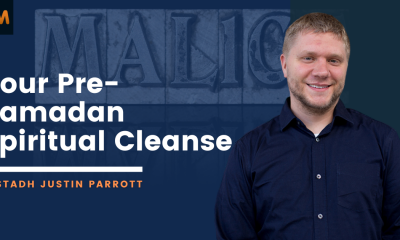History and Seerah
Seerah Series | Part 3: Why Study Seerah, and the Pre-Islamic Arabia | Dr. Yasir Qadhi
Published
Methodology – a plan of revival
Another benefit of studying the sīrah is that it lays a precise methodology for the Ummah. There are so many groups out there; we call them Islamist groups, trying to revive the Ummah – each one with their own ideology and methodology. Why don’t we begin with the methodology of the Prophet  , let us see how he began. If we want to bring ‘izza and honor and glory, let us see how he began because he began out of nothing, literally from scratch, from zero. And within his lifetime, see what happened. So, if you want to see the methodology of revival and we look at the Ummah today, our hearts bleed. Why Allāh
, let us see how he began. If we want to bring ‘izza and honor and glory, let us see how he began because he began out of nothing, literally from scratch, from zero. And within his lifetime, see what happened. So, if you want to see the methodology of revival and we look at the Ummah today, our hearts bleed. Why Allāh  , why is this happening? We ask – How can we revive the state of the Ummah? And the response – by studying the sīrah we see a methodology, a plan of revival.
, why is this happening? We ask – How can we revive the state of the Ummah? And the response – by studying the sīrah we see a methodology, a plan of revival.
The best generation
Keep supporting MuslimMatters for the sake of Allah
Alhamdulillah, we're at over 850 supporters. Help us get to 900 supporters this month. All it takes is a small gift from a reader like you to keep us going, for just $2 / month.
The Prophet (SAW) has taught us the best of deeds are those that done consistently, even if they are small. Click here to support MuslimMatters with a monthly donation of $2 per month. Set it and collect blessings from Allah (swt) for the khayr you're supporting without thinking about it.
By studying the sīrah, we also see the life and times of the best generation who ever lived and that is the generation of the Ṣaḥābah. Allāh says in the Qurʾān in eight or nine verses:
raḍyAllāhu ‘anhum waradhu Anh.
Allāh is pleased with them. And they are pleased with Allāh.
The Prophet  said, the best of all generations has been my generation. Khairum Ummatin Qarni. The best Ummah is my Ummah – meaning that of the Ṣaḥābah. Ibn Mas‘ūd said that Allāh
said, the best of all generations has been my generation. Khairum Ummatin Qarni. The best Ummah is my Ummah – meaning that of the Ṣaḥābah. Ibn Mas‘ūd said that Allāh  looked at the hearts of His servants and He chose the purest and brightest heart to be that of the Prophet Muhammad
looked at the hearts of His servants and He chose the purest and brightest heart to be that of the Prophet Muhammad  , and then He chose the purest and brightest hearts and made them the Ṣaḥābah of the Prophet Muhammad
, and then He chose the purest and brightest hearts and made them the Ṣaḥābah of the Prophet Muhammad  . So by studying the sīrah, we study the stories of Abu Bakr and ‘Umar, the stories of Anas and Jābir, the stories of Saad ibn Mu‘ādh and Talha and Zubayr. And our īmān goes up as well. These were legendary people, their life and times inspire us – their sacrifices, their struggles, their perseverance, their patience. Each and every one of them is a role model for us.
. So by studying the sīrah, we study the stories of Abu Bakr and ‘Umar, the stories of Anas and Jābir, the stories of Saad ibn Mu‘ādh and Talha and Zubayr. And our īmān goes up as well. These were legendary people, their life and times inspire us – their sacrifices, their struggles, their perseverance, their patience. Each and every one of them is a role model for us.
And there is an ‘athar –slightly moved but authentic- that “My Ṣaḥābah are like the stars, whichever one you follow, you are going to be guided.” The point here is that the Ṣaḥābah are role models for us – each and every one of us.
Defending the honor of the Prophet
Of the benefits of studying the sīrah is that the sīrah brings about knowledge with which we can defend the honor of our Prophet  . His honor has always been attacked from day one. The Quraysh fabricated things against him. Saahirun Kazzab. They said this is Iftun Muftara. They said he is a mad man, a magician, a poet; he is this and that, because nobody can explain how the Qurʾān came. You have to invent some explanation. Where did this unlettered shepherd get the Qurʾān from? Even the Quraysh had to explain. So they invent the most preposterous claims. The propaganda that began back then continues to this day. Each one of the charges that the Prophet
. His honor has always been attacked from day one. The Quraysh fabricated things against him. Saahirun Kazzab. They said this is Iftun Muftara. They said he is a mad man, a magician, a poet; he is this and that, because nobody can explain how the Qurʾān came. You have to invent some explanation. Where did this unlettered shepherd get the Qurʾān from? Even the Quraysh had to explain. So they invent the most preposterous claims. The propaganda that began back then continues to this day. Each one of the charges that the Prophet  was accused of, the Qurʾān defends against it. And each of the charges people later invent, we need to turn to the sīrah and defend the Prophet
was accused of, the Qurʾān defends against it. And each of the charges people later invent, we need to turn to the sīrah and defend the Prophet  .
.
In our times, how many people are saying that the Prophet  was a blood thirsty terrorist. This is exactly what they are saying. They’re saying he was a womanizer, he married this, and he married that. My dear brothers and sisters, if you want to defend Rasūlullāh, how do you expect to do so when you don’t know his life and times? If you want to defend your Prophet
was a blood thirsty terrorist. This is exactly what they are saying. They’re saying he was a womanizer, he married this, and he married that. My dear brothers and sisters, if you want to defend Rasūlullāh, how do you expect to do so when you don’t know his life and times? If you want to defend your Prophet  , how are you going to do so, when you don’t know whether these things are true or not? If certain elements are true, how do we understand them? And when we put them in context, inshā’Allāh wa ta‘āla, it is easier to explain.
, how are you going to do so, when you don’t know whether these things are true or not? If certain elements are true, how do we understand them? And when we put them in context, inshā’Allāh wa ta‘āla, it is easier to explain.
By studying the sīrah, we will be able to defend the Prophet  , and there is no other way to defend him than by studying the sīrah. And that is why the early scholars, the Ṣaḥābah, Tabi‘ūn, and the Taba Tabi‘ūn would teach the sīrah just like they would teach all of the other sciences.
, and there is no other way to defend him than by studying the sīrah. And that is why the early scholars, the Ṣaḥābah, Tabi‘ūn, and the Taba Tabi‘ūn would teach the sīrah just like they would teach all of the other sciences.
Teaching our children
‘Alī Ibn Al Husayn, the great-grand son of the Prophet  said, “We would teach our children maghazi just like we would teach them the Qurʾān.” Maghazi is the earlier word for the sīrah, the expeditions of the Prophet
said, “We would teach our children maghazi just like we would teach them the Qurʾān.” Maghazi is the earlier word for the sīrah, the expeditions of the Prophet  . You see this is how they would raise their children, with Sīrah and the Qurʾān. You need to teach the children sīrah along with the Qurʾān. So the curriculum in early Islam was composed of Qurʾān and sīrah of the Prophet
. You see this is how they would raise their children, with Sīrah and the Qurʾān. You need to teach the children sīrah along with the Qurʾān. So the curriculum in early Islam was composed of Qurʾān and sīrah of the Prophet  , and I encourage all of you to start the same with your own children, that instead of reading bed-time stories of ancient Greek pagans, why don’t we talk about the life and times of our Prophet Muhammad
, and I encourage all of you to start the same with your own children, that instead of reading bed-time stories of ancient Greek pagans, why don’t we talk about the life and times of our Prophet Muhammad  ? Or talk about the Ṣaḥābah? There are so many books of sīrah for the children, that these are the stories that our children should be raised upon and listen to. So, to summarize the benefits of studying the sīrah is that it is the study of the best and the best and the best and the best. What do I mean by this? It is the study of the life and times of the single best human being who ever lived.
? Or talk about the Ṣaḥābah? There are so many books of sīrah for the children, that these are the stories that our children should be raised upon and listen to. So, to summarize the benefits of studying the sīrah is that it is the study of the best and the best and the best and the best. What do I mean by this? It is the study of the life and times of the single best human being who ever lived.
Now we firmly believe as Muslims that all the Prophets are good and pious and holy and the Prophet  is the best of them. as he said in a ḥadīth:
is the best of them. as he said in a ḥadīth:
Ana Saiyyidu, walladhi Aadama yawmul Qiyaamati walaa fakhar – I am the saiyed, the leader, the paragon of virtue of the children of Ādam, and I am not saying this out of arrogance – wala fakhar – I am not saying this to boast. It’s a factual statement that Allāh has told me.
The best place on Earth
By studying the sīrah, we study the best person, and the best time because the best time is the time of the Ṣaḥābah, and the best people are the people of the Ṣaḥābah, and the best place – that is Makkah and Madīnah, these are the holiest cities on Earth. It is the sīrah that brought prominence to these two cities. We firmly believe that Makkahh was holy, but who knew or believed it was holy? Who cared it was holy until the sīrah came?
And as for Madīnah, it became holy, in the life of the Prophet  .
.
He said, “I am making Madīnah holy, like Ibrāhīm made Makkahh holy, by the permission of Allāh.”
Best of the best
So the Ibrāhīm is the life and times of the best human, in the best era, amongst the best people, best generation, and living in the best of all cities. In every angle it is the best of the best of the best. Therefore, studying the Prophet’s  life and times is studying our religion. It is studying the rise of the phenomenon of our religion, it is studying how Allāh
life and times is studying our religion. It is studying the rise of the phenomenon of our religion, it is studying how Allāh  brought about the revolution of Islam. He brought about an entire change of mind – how Islam changed the world. By studying these 23 years of the life of Prophet
brought about the revolution of Islam. He brought about an entire change of mind – how Islam changed the world. By studying these 23 years of the life of Prophet  , from the beginning of his Risaala, the miracle of the sīrah will benefit us in each and every aspect.
, from the beginning of his Risaala, the miracle of the sīrah will benefit us in each and every aspect.
Sources of sīrah
The next question that arises is: Where do we study the sīrah from? What are the primary sources of the sīrah? Here I am preaching from Memphis TN, 1432 years after the Hijrah of the Prophet  . Where did I get this information from? How do I know what happened? What are the sources of the sīrah of the Prophet
. Where did I get this information from? How do I know what happened? What are the sources of the sīrah of the Prophet  ? Who can tell me the number one source of the sīrah of the Prophet
? Who can tell me the number one source of the sīrah of the Prophet  ? Yes, the number one source is the Qurʾān. The Sunnah is number two.
? Yes, the number one source is the Qurʾān. The Sunnah is number two.
Qurʾān as the primary source
The number one source is the Qurʾān and it is overlooked by many people. Many people wonder is it Ibn Isḥāq? Or is it Ibn Hisham? The number one source is the Qurʾān. The Qurʾān was revealed during the sīrah, and it catered to the situations that arose during the sīrah. The Qurʾān references each and every single major incident in the life of the Prophet  , in fact even before his time.
, in fact even before his time.
Just for example:
Alam nashrah laka sadrak
Wa wa d’ana ‘annka wizrak
Alladzee ann qada zahrak
Wa raf ‘anaa laka zikrak
– the reference here is when he was five years old, when Jibrīl [‘alayhi’l-salām] visited him.
Is there another story before he was even born?
Alam tara kayfa fa’ala rabbuka bi ashaabal feel
The As’ha bil Feel were before the Prophet  was born. So the sīrah tells us stories from the beginning all the way until the end.
was born. So the sīrah tells us stories from the beginning all the way until the end.
alyawma akmaltu lakum deenakum waatmamtu Aalaykum niA’Amatee waradeetu
lakumu alislama deenan
One of the last verses revealed – the completion.
The Qurʾān is the best source for sīrah for many reasons. First and foremost, it is the speech of Allāh  . So, Allāh
. So, Allāh  is telling this to us. So, can we doubt the Speech of Allāh
is telling this to us. So, can we doubt the Speech of Allāh  ? And the eloquence of the Qurʾān is something that is unparalleled. How beautifully Allāh
? And the eloquence of the Qurʾān is something that is unparalleled. How beautifully Allāh  describes Badr and Uhud, and the feelings of the Ṣaḥābah and the Munāfiqoon even. So another benefit of the Qurʾān is that the historian will record the outward, Qurʾān records the inward.
describes Badr and Uhud, and the feelings of the Ṣaḥābah and the Munāfiqoon even. So another benefit of the Qurʾān is that the historian will record the outward, Qurʾān records the inward.
The Qurʾān tells us that : Ith tus‘idoona wala talwoona ‘ala ahadin waalrrasoolu yad’ookum fee fee okhrakum ……
The Qurʾān tells us that you were terrified that day that your hearts were in your throats. The Qurʾān tells us that you became cowards.
Munāfiqoon: The Qurʾān tells the Munāfiqoon that you are scared that Allāh  will expose you. Who can expose the hearts of the people other than Allāh
will expose you. Who can expose the hearts of the people other than Allāh  ? So the Qurʾān is an amazing source of sīrah – the eloquence, the power, the beauty, and ‘ilmal ghayb. The Qurʾān explains to us phenomenon that we would not have the ability to understand.
? So the Qurʾān is an amazing source of sīrah – the eloquence, the power, the beauty, and ‘ilmal ghayb. The Qurʾān explains to us phenomenon that we would not have the ability to understand.
Badr – Allāh says in the Qurʾān: 3;124: [And remember] when thou didst say unto the believers: “Is it not enough for you [to know] that your Sustainer will aid you with three thousand angels sent down [from on high]?
Uhud and Hudaibiyyah: On and on the Qurʾān tells us ‘ilmal ghayb. There is no source of finding these things out other than through the Qurʾān.
Chronology – However one of the issues regarding the Qurʾān is that it is not chronological. So, we don’t know the reference of the Qurʾān simply because Al-Baqarah, Āle-‘Imrān, Al-Nisā’, and Al-Mā’idah are not arranged chronologically. They are arranged according to how the Prophet  wanted them to be arranged. So, Al-Baqarah is an early Madani surah and it comes first. And Al-‘Alaq which is the first surah is 96th in the Qurʾān. So it is not arranged chronologically. Another problem is that a lot of time you don’t see the reference mentioned. So, Allāh ‘azza wa jall doesn’t mention the word Uhud. We need to know that Āle-‘Imrān was revealed for Uhud and that Al-Anfāl was revealed for Badr. We need to know that the sīrah and the Qurʾān go hand in hand. You need the sīrah to understand the Qurʾān and you need the Qurʾān to understand the sīrah. This is the first source, the most prized and eloquent source.
wanted them to be arranged. So, Al-Baqarah is an early Madani surah and it comes first. And Al-‘Alaq which is the first surah is 96th in the Qurʾān. So it is not arranged chronologically. Another problem is that a lot of time you don’t see the reference mentioned. So, Allāh ‘azza wa jall doesn’t mention the word Uhud. We need to know that Āle-‘Imrān was revealed for Uhud and that Al-Anfāl was revealed for Badr. We need to know that the sīrah and the Qurʾān go hand in hand. You need the sīrah to understand the Qurʾān and you need the Qurʾān to understand the sīrah. This is the first source, the most prized and eloquent source.
Hadīth as a second source
The second source of sīrah is ḥadīth. In fact, every ḥadīth is one snapshot of the sīrah, is it not? What is a ḥadīth? It’s a saying of the Prophet  . And what is the saying of the Prophet
. And what is the saying of the Prophet  , except one incident. And so in one sense, every single ḥadīth is a snapshot of the sīrah. But of course, when we mean ḥadīth, we primarily mean those that describe some incident – somebody came, somebody did this, or that happened. There are lots of books of ḥadīth and the most famous ones you should know are the Kutubul Sitta, the six books of ḥadīth. Some call them Siha al Sitta, but that is not precise, because all of them are not saḥīḥ. But Kutbul Sitta are primary books and there are lots of books of aḥadīth, there are dozens of them.
, except one incident. And so in one sense, every single ḥadīth is a snapshot of the sīrah. But of course, when we mean ḥadīth, we primarily mean those that describe some incident – somebody came, somebody did this, or that happened. There are lots of books of ḥadīth and the most famous ones you should know are the Kutubul Sitta, the six books of ḥadīth. Some call them Siha al Sitta, but that is not precise, because all of them are not saḥīḥ. But Kutbul Sitta are primary books and there are lots of books of aḥadīth, there are dozens of them.
Earlier books of sīrah
The third source of sīrah, is books specifically written for sīrah. And the first people to begin writing books of sīrah were the Ṣaḥābah’s children. Can you imagine if your father was a Ṣaḥābi and he was telling you all the stories of the Prophet  . There are so many that you begin to write them down.
. There are so many that you begin to write them down.
Urwa: The greatest of those who wrote was Urwa the son of Zubayr. Urwa is the son of a Ṣaḥābi, he was the grandson of a Ṣaḥābi. His mother is a Ṣaḥābiyya. His grandmother is a Ṣaḥābiyya. His brother was a Ṣaḥābi, but he was born after the death of the Prophet  , so he is not a Ṣaḥābi. His aunt is ‘Ā’ishah, wife of the Prophet
, so he is not a Ṣaḥābi. His aunt is ‘Ā’ishah, wife of the Prophet  , so Urwa is a primary narrator of ḥadīth, fiqh, tafsīr and sīrah, because he had access to ‘Ā’ishah. Nobody else had access to ‘Ā’ishah. He is her mahram. ‘Ā’ishah doesn’t need to wear hijab in front of him. So Urwa is the primary narrator from ‘Ā’ishah. And lots of details of the Prophet
, so Urwa is a primary narrator of ḥadīth, fiqh, tafsīr and sīrah, because he had access to ‘Ā’ishah. Nobody else had access to ‘Ā’ishah. He is her mahram. ‘Ā’ishah doesn’t need to wear hijab in front of him. So Urwa is the primary narrator from ‘Ā’ishah. And lots of details of the Prophet  came from Urwa, because ‘Ā’ishah told him those details. And it is said that Urwah wrote a small pamphlet of the sīrah.
came from Urwa, because ‘Ā’ishah told him those details. And it is said that Urwah wrote a small pamphlet of the sīrah.
Abban : He was the son of Uthman Bin Afwan – his name was Abban ibn ‘Uthmān ibn ‘Affān. The son died in 105 Hijrah. He also wrote a little booklet of sīrah and some other booklets were written, until finally a great scholar came by the name of Ibn Shihab Az Zuhri.
Ibn Shihab Az Zuhri: He died 129 Hijrah. He wrote one of the first early treatises of sīrah. Now none of these books exist anymore.
Keep supporting MuslimMatters for the sake of Allah
Alhamdulillah, we're at over 850 supporters. Help us get to 900 supporters this month. All it takes is a small gift from a reader like you to keep us going, for just $2 / month.
The Prophet (SAW) has taught us the best of deeds are those that done consistently, even if they are small. Click here to support MuslimMatters with a monthly donation of $2 per month. Set it and collect blessings from Allah (swt) for the khayr you're supporting without thinking about it.
Sh. Dr. Yasir Qadhi is someone that believes that one's life should be judged by more than just academic degrees and scholastic accomplishments. Friends and foe alike acknowledge that one of his main weaknesses is ice-cream, which he seems to enjoy with a rather sinister passion. The highlight of his day is twirling his little girl (a.k.a. "my little princess") round and round in the air and watching her squeal with joy. A few tid-bits from his mundane life: Sh. Yasir has a Bachelors in Hadith and a Masters in Theology from Islamic University of Madinah, and a PhD in Islamic Studies from Yale University. He is an instructor and Dean of Academic Affairs at AlMaghrib, and the Resident Scholar of the Memphis Islamic Center.


30 Nights with the Qur’an: A Ramadan Series for Muslim Teens

Keep Zakat Sacred: A Right Of The Poor, Not A Political Tool

Far Away [Part 9] – Crane Dances In The River

From The MuslimMatters Bookshelf: Ramadan Reads For 1447 AH

Courting The Crosswinds: The Tragedy Of Saif Al-Islam Qaddafi

[Podcast] Should Muslims Ally with Conservatives or Progressives? | Imam Dawud Walid

How to Make this Ramadan Epic | Shaykh Muhammad Alshareef

[Podcast] The Parts of Being an Imam They Don’t Warn You About | Sh Mohammad Elshinawy

[Podcast] Guardians of the Tradition: Muslim Women & Islamic Education | Anse Tamara Gray

Iron Principle Under Pressure: A Profile Of Naledi Pandor

[Podcast] Guardians of the Tradition: Muslim Women & Islamic Education | Anse Tamara Gray

How to Make this Ramadan Epic | Shaykh Muhammad Alshareef

[Dhul Hijjah Series] Calling Upon the Divine: The Art of Du’a (Part 1)

IOK Ramadan 2025: Four Steps | Sh Zaid Khan

IOK Ramadan 2025: Do Your Best | Sh Zaid Khan
Trending
-

 #Current Affairs4 weeks ago
#Current Affairs4 weeks ago[Podcast] Should Muslims Ally with Conservatives or Progressives? | Imam Dawud Walid
-

 #Current Affairs1 month ago
#Current Affairs1 month agoOp-Ed: From Pakistan To Gaza – Why Senator Mushtaq Ahmad Khan Terrifies Power And Zionism
-

 #Culture1 month ago
#Culture1 month agoThe Muslim Book Awards 2025 Winners
-

 #Islam3 weeks ago
#Islam3 weeks agoHow to Make this Ramadan Epic | Shaykh Muhammad Alshareef







Melanie
March 21, 2014 at 12:31 PM
Jazaka Allah Kharyun, Dr. Qadhi for the reminders..i love the written transcript so much easier for me to read and review.
yellow roses
March 21, 2014 at 12:38 PM
May Allah continue to bless you and your family !!! This came at the right time for me.
Aly Balagamwala
March 22, 2014 at 10:10 AM
Dear Sister
Jazakillahu Khairin for your regular comments on our site. Please note that our Comments Policy states that you must use your name, a Kunyah or a valid blog handle if it is linked to your blog and a valid email address. This has been pointed out to you earlier in a couple of comments. Kindly help us by following the guidelines of the Comments Policy.
Best Regards
Aly
Shifaya
April 8, 2014 at 12:23 AM
JazakAllahu Khayran for the wonderful transcription. Looking forward for part 4, In Shaa Allah :)
Mohammed
April 15, 2014 at 8:24 AM
Masha Allah this is scholarly work. Keep up the good work. Jazak Allah khairan
Thasneem
April 24, 2014 at 2:09 AM
Assalamu alaikum! I have a few questions to be answered by Dr. Yasir Qadhi. I have been listening to his lectures on the Seerah of the Prophet Muhammad ( PBUH ) uploaded by MemphisIslamicCenter on YouTube and have covered upto Hudaybiyya.
1. It was told that Kunooth was recited by Prophet Muhammad ( PBUH ) only at times of calamity for the Ummah as a whole as in the massacre at well of Mauna and Al Raji and not in the Fajr prayers.
2. It was also told that the period of Iddah is one menstrual cycle and not 3 months or 4 months & 10 days as argued by some.
3. The last question is the gusl for Janabath. Is it necessary for gusl or just the ablution will clean you from the state of impurity.
There are many views regarding these. Can you please explain further the different views by renowned scholars and the Sunnah practiced by our prophet. I would like to know the view of Dr. Zakir Naik also since I follow some of his lectures and find them to have been researched.
Jazakallahu khaira!
Kari
May 20, 2014 at 8:11 PM
Assalamu Alaikum. JazakAllah Khair for the transcript! Really appreciate it..
sayyadi
June 27, 2014 at 1:13 AM
Jazakallah. An islamic historian student from Nigeria.
Gul
September 27, 2014 at 9:06 AM
السَّلاَمُ عَلَيْكُمْ وَرَحْمَةُ اللهِ وَبَرَكَاتُهُ
JazakAllah Khayran for the transcription of this series. It has been immensely helpful. I was wondering if you are going to be doing the rest of the videos of this series?
Sarah
November 2, 2014 at 3:17 PM
Please do the others! These are hugely beneficial. jazakallah khayran
Safwan
February 7, 2015 at 12:58 PM
Jazak’Allah Khair for this.
For anyone wanting more transcribed notes for the seerah lectures, please visit https://www.scribd.com/safwan9khan.
I have (as of writing) completed notes for all the lectures up to lecture 61. The remaining will be complete within the next two months inshaAllah. Please share with others if you find them beneficial.
Abdullah Sherazi
October 29, 2015 at 10:26 AM
Assalamu Alaikum Brother,
Can you send me the transcripts in my email abbudm@yahoo.com?
JazakAllah Khairan for your hard work.
Haris Khan
December 10, 2015 at 10:57 PM
I can’t download it from Scribd as it required payment for registration. Please, please I need them all. Can you email me at hariskamalkhan717@gmail.com?
abu Hamzah
March 25, 2015 at 12:32 PM
As salamu alaikum. have Zohra written more notes than 3 parts. The notes are really good mashaAllah.
Fatuma Abdi
April 18, 2015 at 10:41 AM
Assalama Aleikum.I have learnt a lot.Jazakallah kheir may Allah bless you
Ibrahim
June 11, 2015 at 5:19 AM
Assalamu alaikum..I learnt a lot from Dr. Yasir..Also looking for the transcripts of the other parts of the seerah series by Dr. Yasir.(part 4 to part 104) .. Got only the first three transcripts here..Is there any link where i can get all the transcripts regarding the seerah series??Appreciate any suggestions..Allah Hafej
Safwan
November 29, 2015 at 10:17 AM
Please see http://www.scribd.com/safwan9khan. Alhamdhulillah I have transcribed the entire seerah series. InshaAllah they will be beneficial to you. JazakAllah Khair.